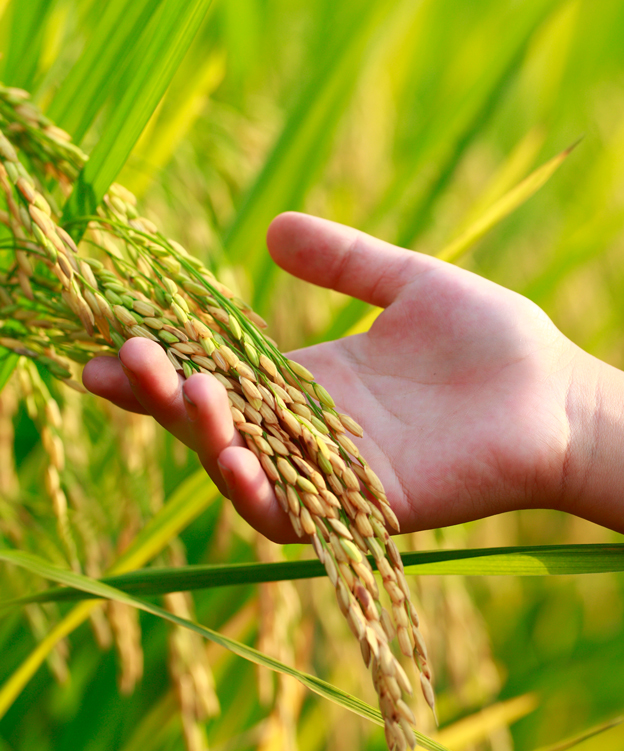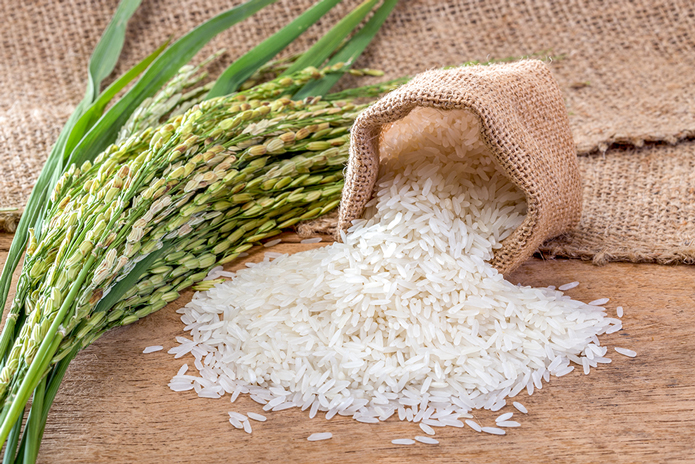Does Rice Need to be Organic?: The truth about Healthy Rice
Does rice need to be organic? Organic rice farming stands out for its strict avoidance of synthetic fertilizers, pesticides, or genetically modified organisms (GMOs), favoring methods that promote biodiversity and enhance ecosystem health instead. With burgeoning interest in organic produce, rice varieties such as basmati, brown rice, white rice, and organic brown basmati rice, carry the appeal of being nutrient-rich and potentially safer due to lower arsenic levels compared to their conventional counterparts. This article delves into the essence of organic rice cultivation, exploring the benefits of organic rice over conventional rice, including nutritional and health implications. It seeks to provide an authoritative comparison between organic rice and regular rice, emphasizing consumer trends that favor whole grains and pondering if organic rice is worth the investment.
Understanding Organic Rice Cultivation
Organic rice cultivation is a testament to sustainable and environmentally friendly farming practices, emphasizing the health of both the ecosystem and the consumer. Here’s an in-depth look at the methods and principles behind organic rice farming:
Soil Health and Biodiversity:
Organic rice is grown using soil amendments like compost, avoiding over 40 different pesticides common in conventional rice production. This approach supports research aimed at decreasing arsenic levels and reducing arsenic pathways into the food supply. It focuses on enhancing soil health and biodiversity, which contributes significantly to the nutritional profile of the rice.
Sustainable Farming Practices:
Ancient methods that exclude chemical fertilizers are employed, relying instead on animal manures, crop residues, and biological measures. These practices promote healthier soil, reduce water pollution, and support biodiversity by encouraging natural pest control and preserving native plant species.

Organic rice farming not only provides a premium product in high demand but also aligns with a growing consumer trend towards environmental sustainability and food safety.
Benefits of Organic Rice Over Conventional Rice
Organic vs. Conventional Rice: Key Benefits

Health and Safety
- Pesticide Residues: Organic rice may have lower pesticide residues, offering a safer option for consumers concerned about chemical exposure.
- Reduced Health Risks: Organic white rice is noted for its potential lower health risks compared to conventional varieties, which can contain over 40 types of pesticides and herbicides.
Environmental Impact
- Soil and Water Conservation: Organic farming practices enhance soil quality, promote water conservation, and support biodiversity, significantly reducing pollution and waste in agriculture.
- Eco-friendly Packaging: Many organic rice brands opt for sustainable packaging solutions, further minimizing environmental impact.
Nutritional Benefits and Consumer Preferences
Superior Taste and Nutritional Profile: Some consumers report a preference for the taste and nutritional benefits of organic rice, which is often perceived as healthier and free from additives.
These points underscore the multifaceted advantages of choosing organic rice, from health and safety to environmental sustainability and community support.
Nutritional and Health Implications
Organic rice, celebrated for its rich nutrient profile, stands as a cornerstone for those seeking a healthier diet. The nutritional and health implications of consuming organic rice are manifold, highlighting its essential role in a balanced diet:
Nutrient Density and Health Benefits:
- Organic rice retains more nutrients, such as fiber and essential minerals, due to minimal processing, making it a nutrient-rich choice.
- It serves as a vital source of necessary carbohydrates for energy, aids in weight control, and promotes bowel regularity, contributing significantly to overall health and well-being.
- Being naturally gluten-free, organic rice is a safe and delicious option for individuals with gluten sensitivities, ensuring inclusivity in healthy eating.
- Organic rice is chosen for its minimal exposure to pesticides and herbicides, making it a safer option. It’s not just about being low in calories; organic rice, particularly brown varieties, accelerates metabolism and aids in body fat loss, making it a staple for those focused on weight management.

Reducing Health Risks:
- Strategies such as washing or soaking rice can reduce arsenic levels by up to 30%, mitigating health risks associated with arsenic exposure.
- Organic farming methods contribute to lower pesticide residues in rice, further reducing health risks and making organic rice a safer choice.
- Regular consumption of organic rice can aid digestion and promote a feeling of fullness, which, in turn, may lower the risk of heart disease. Additionally, organic rice supports the body in producing healthy fatty acids, which are essential for manufacturing beneficial cholesterol types.
Nutritional Facts Across Varieties:
- Organic white rice, for instance, provides 150 kCal per 105g serving, with other organic rice products offering varying levels of calories, proteins, and essential nutrients.
- Rich in natural vitamins and proteins like magnesium and Vitamin B, organic rice supports heart health and reduces the risk of chronic diseases.
- Whole grains like organic brown rice are higher in fiber and antioxidants, promoting heart health and reducing cancer risk.
This comprehensive nutrient profile and associated health benefits underscore the importance of incorporating organic rice into a diet focused on health and wellness.
Conclusion
In the journey towards healthier eating and sustainable sourcing, the role of consumer choice cannot be overstated. The increasing demand for organic rice reflects a collective move towards products that offer both health benefits and environmental stewardship.
Gain access to our online app and catalogue to explore our rice section today. By opting for organic, you are not only contributing to a sustainable future,but also nourishing your offerings and increasing your overall sales by targeting the informed buyers.






